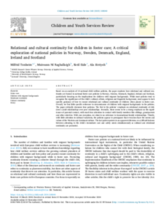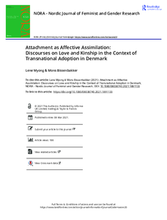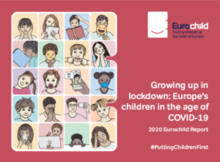Displaying 1 - 10 of 46
This article highlights the experiences of Greenlandic families in Denmark whose children were taken into care following parental competency tests (FKUs), which critics say are culturally biased, conducted in Danish rather than Kalaallisut, and fa
An analysis of 14 national foster care policies across six European countries found that while most acknowledge children’s cultural, ethnic, religious, and linguistic backgrounds, they provide little concrete guidance on ensuring relational and cultural continuity—particularly for children with migrant backgrounds. The study highlights four policy patterns, including prioritizing adult over peer relationships, emphasizing parental contact over extended family or transnational ties, assuming Western cultural norms, and struggling to balance immediate care needs with maintaining cultural and relational connections.
Six Inuit who were snatched from their families in Greenland and taken to Denmark 70 years ago are demanding compensation from Copenhagen for a lost childhood.
This article attempts to initiate a critical dialogue on the politics of love and attachment by investigating the way in which the concept of attachment governs the field of transnational adoption.
Based on analysis of legal documents on family reunification and educational material concerning transnational adoption in Denmark, this article suggests that the concept of attachment may be conceptualized as a specific operationalization of belonging, and that belonging and biopower may be viewed as intertwined (rather than opposites).
This study examines service users' and practitioners' assessment of the feasibility of systematically evaluated interventions in the everyday life of foster care families.
This study investigates the extent and causes of child abandonment and various practices and services in relation to prevention of child abandonment in Denmark and other high-income countries.
"Denmark's prime minister has apologised to 22 children who were removed from their homes in Greenland in the 1950s in a failed social experiment," says this article from BBC News.
This report reflects on the effects of the coronavirus pandemic on children. It compiles information gathered from 25 countries across Europe, and provides recommendations for improving public policies in the short and long-term to support better outcomes for children and families, including children in alternative care or at risk of separation.
This paper addresses the conceptualization of ‘outcomes’ for care experienced people through an in-depth longitudinal study of 75 young adults in Denmark, England and Norway.



